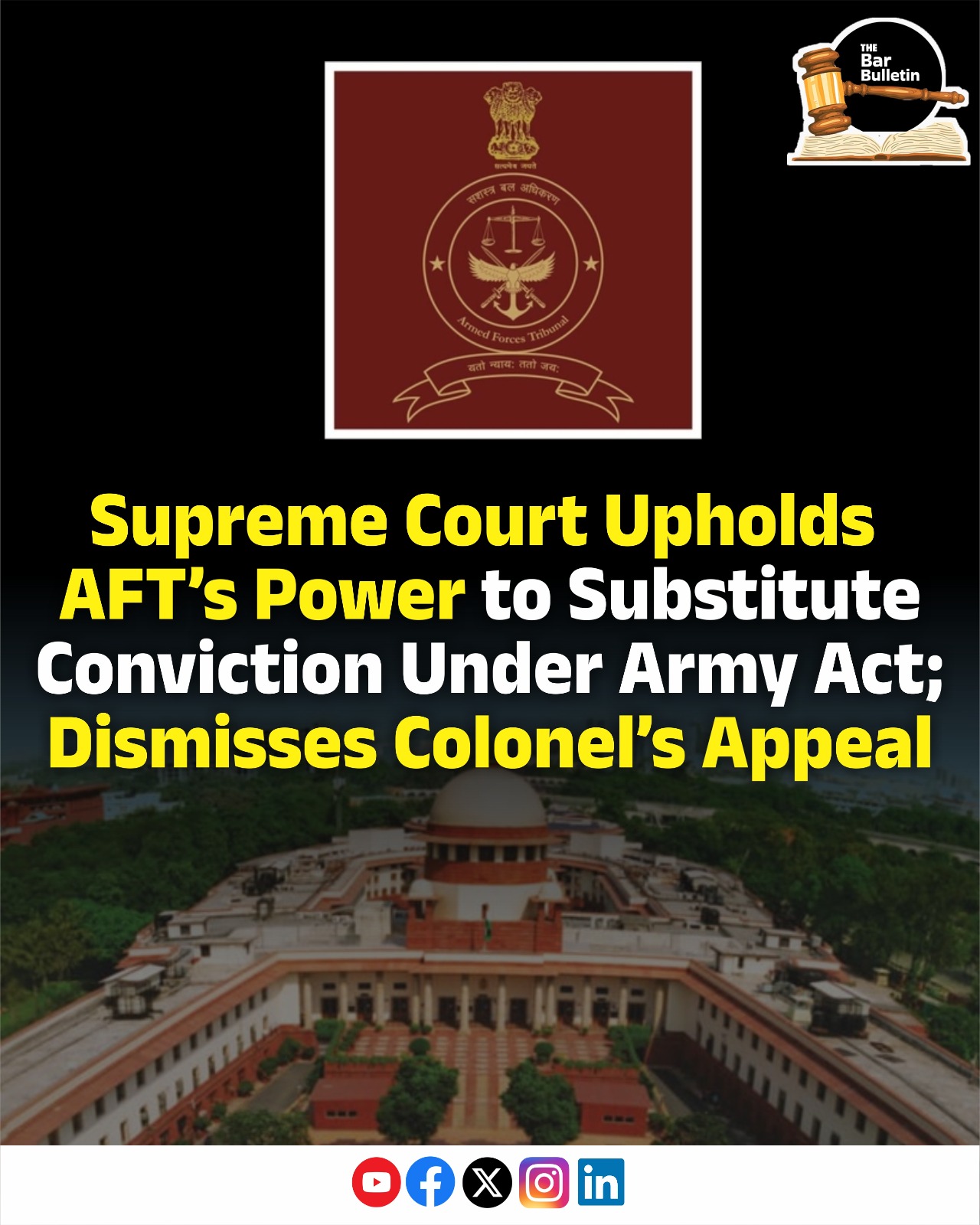The Supreme Court has upheld the Armed Forces Tribunal’s (AFT) power under Section 15(6) of the Armed Forces Tribunal Act, 2007 (AFT Act), to substitute a conviction under Section 63 of the Army Act, 1950, affirming the compulsory retirement of a Colonel originally charged with possession of ammunition, among others.
The Bench of Justice J.B. Pardiwala and Justice Alok Aradhe dismissed the appeal filed by Appellant, who had challenged the AFT’s order substituting his conviction from a civil offence under the Arms Act to an act prejudicial to good order and military discipline under Section 63 of the Army Act.
The appellant was firstly tried by a General Court Martial (GCM) on charges of (i) demanding a bribe of ₹10,000 from a contractor, (ii) unlawful possession of ammunition, and (iii) possession of unaccounted cash. The GCM convicted him of the first two charges and dismissed him from service.
His pre-confirmation petition was rejected on June 4, 2009, and the post-confirmation petition filed by appellant remained undecided beyond the statutory period of thirty days. In May, 2010, the AFT directed the Union of India to dispose of the petition within 45 days, but the direction was not complied with. The appellant again approached AFT, challenging both the GCM’s order and the rejection of his pre-confirmation petition. During its pendency, the Union of India finally dismissed his post-confirmation petition on November 9, 2010.
The Armed Forces Tribunal found that there was no evidence to prove the demand or acceptance of bribe and that the conviction under the Arms Act was unsustainable because the evidence did not support possession of ammunition without license. However, invoking its powers under Section 15(6) of the AFT Act, 2007, the Tribunal substituted the finding on the same charge and modified the punishment of dismissal to compulsory retirement with pensionary benefits.
Challenging this order before the Supreme Court, the appellant contended that once acquitted under the Arms Act, the Tribunal could not convict him for another offence arising from the same facts and further argued that the punishment of compulsory retirement was erroneous.
On the other hand, respondent submitted that Section 15(6) empowers the Tribunal to substitute findings for any other offence that could lawfully have been found by the Court Martial on the same evidence.
The Court noted that ammunition capable of discharge was indeed recovered from the officer’s office and that his failure to adhere to mandatory procedures for ammunition disposal amounted to an act prejudicial to military discipline. Referring to Section 15(6) of the AFT Act, the Bench observed that the provision is pari materia with Section 162 of the Army Act and Section 222 CrPC[1], which permits conviction for a lesser or related offence where the evidence supports it.
“The Tribunal exercised its discretion in a manner both just and proportionate, balancing the disciplinary needs of service with fairness to the individual,” the Court observed, holding that there was no arbitrariness or illegality in the AFT’s decision.
The Supreme Court accordingly dismissed the appeal and upheld the Tribunal’s order, confirming the punishment of compulsory retirement with all pensionary and retiral benefits.
[1] Replaced by Section 245 of Bhartiya Nagarik Suraksha Sanhita, 2023.



